10 Executives Reshaping Government
StartEvery president enters office with promises to make government work more efficiently and effectively. President Trump is no exception. His administration has pledged to improve border security, serve veterans more effectively, jump start the economy and reduce unnecessary spending. Here are some of the key players carrying out that agenda.
1/10
Mick Mulvaney
White House Budget Director; Acting Director, Consumer Financial Protection Bureau
Mick Mulvaney may prove to be one of President Trump’s most consequential appointments. A founding member of the conservative Freedom Caucus in Congress, the former representative from South Carolina has long advocated for a smaller, less costly and less intrusive federal government. As director of the White House Office of Management and Budget, he’s in a position to make good on that vision.
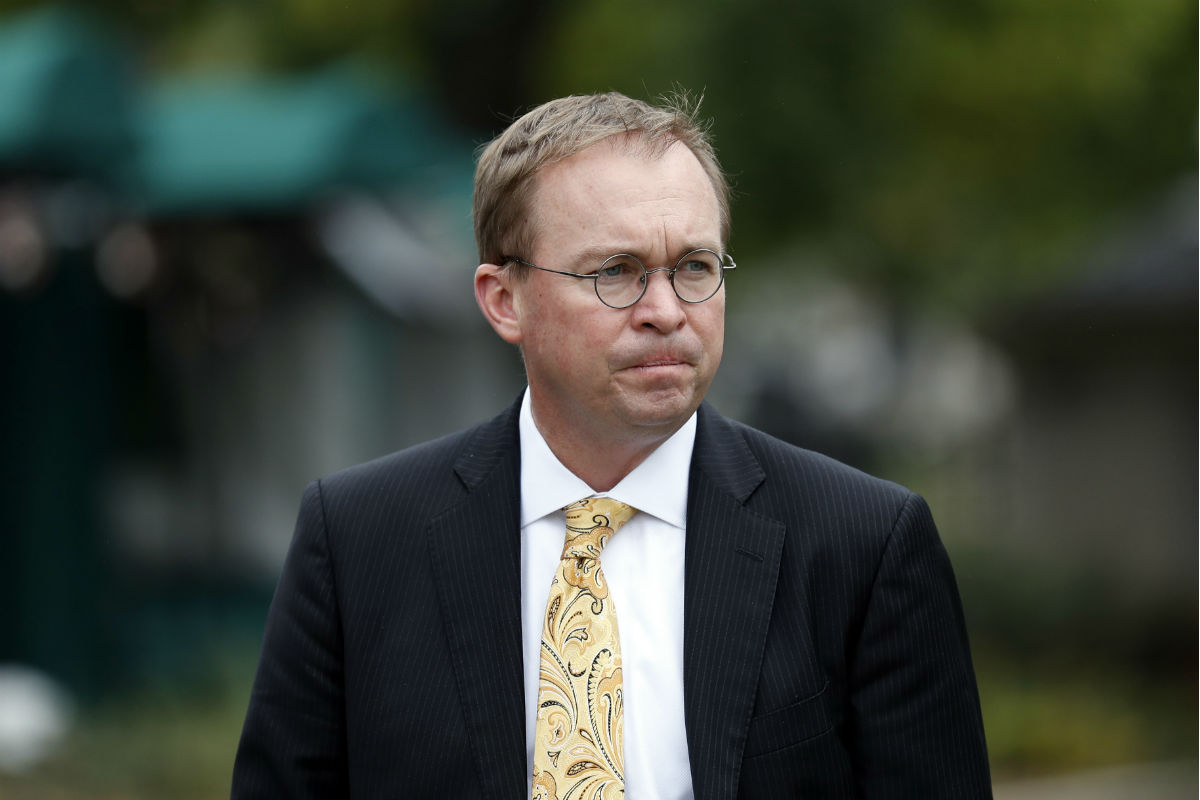
AP file photo One of his first orders of business was to direct agencies to develop plans to reduce staff and redundant operations, and hold employees accountable for performance.
Small-government conservatives found another reason to cheer when Trump in November tapped Mulvaney to serve as acting director of the Consumer Financial Protection Bureau, an agency created during the Obama administration in the wake of the financial crisis over objections from many Republicans, including Mulvaney.
And Mulvaney appears ready to shake things up at CFPB. “Rumors that I’m going to set the place on fire, or blow it up, or lock the doors, are completely false,” Mulvaney said in a press conference following his appointment at CFPB. “That being said,” he added, “anybody who thinks that a Trump administration CFPB would be the same as an Obama administration CFPB is simply naive. Elections have consequences.”
Those consequences included a 30-day freeze on hiring, rulemaking, regulations, guidance, and payments from the civil penalties fund (which is used to compensate Americans who have been harmed by financial institutions). “Anything that’s in the pipeline stops,” he said, noting that such a move isn’t unusual during a leadership change at a government agency.
While that’s true, he’s taken additional steps to loosen regulations on the financial industry, the Atlantic noted. Perhaps tellingly, CFPB’s mission statement “was changed to include language that supports Trump’s broader push for deregulation, a somewhat odd addition for a regulatory body.”
2/10
Russell Vought
Deputy Director, OMB
Serving as Mick Mulvaney’s deputy at OMB is Russell Vought, the former vice president of the conservative advocacy group Heritage Action for America and a long-time champion of efforts to scale back government.
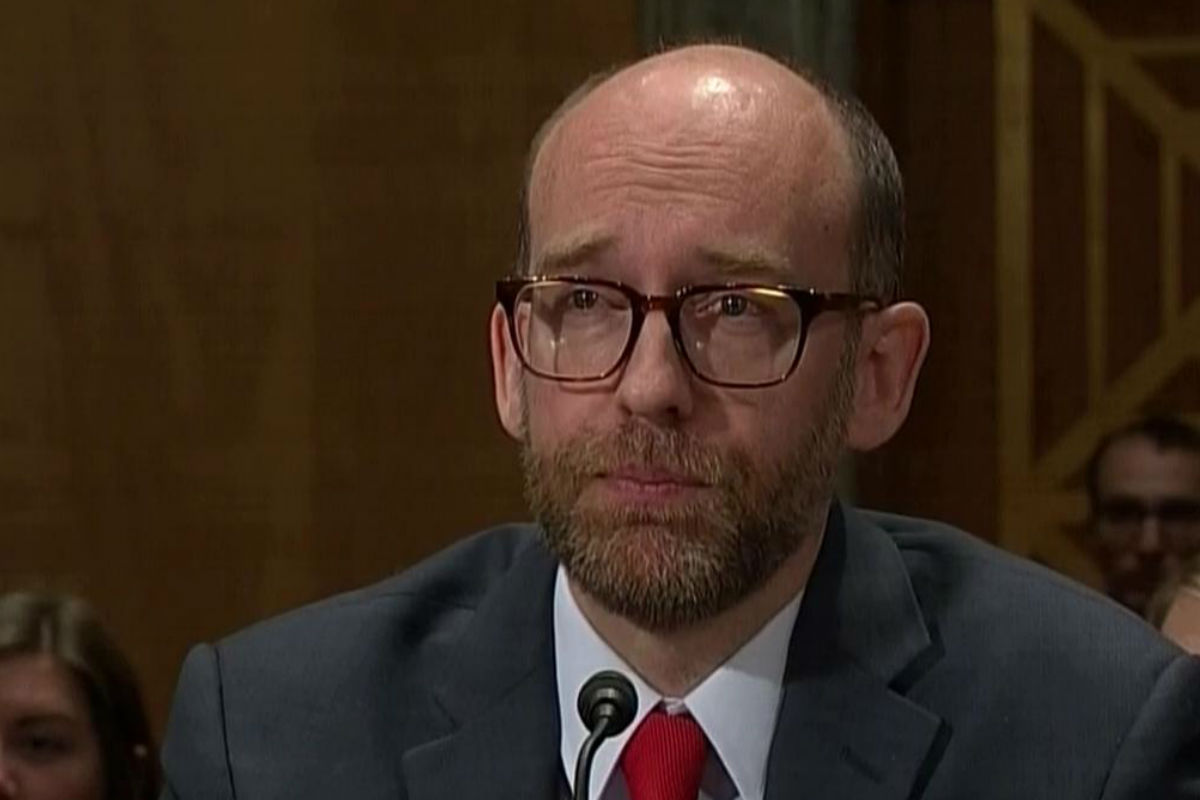
c-span.org A 12-year Capitol Hill Republican staffer and attorney, Vought has been policy director for the House Republican Conference (working under then Rep. and now Vice President Mike Pence) and previously was executive director of the Republican Study Committee.
“I’m a conservative first and then a Republican,” Vought told Washingtonian in 2008. “I believe very strongly that Americans should be able to pursue their own happiness and have freedom to do that, have the freedom to choose prosperity and work toward it.”
Vought strongly defended the macro-numbers and priorities laid out in President Trump’s fiscal 2018 budget, released in 2017. During his Senate confirmation hearing, Vought stressed that country’s $20 trillion national debt “will eventually wreck the country if not addressed.”
“I come from a blue collar family. I’m the son of an electrician and a school teacher. I know what they went through to balance their budget and save for the future,” he said. “But they also worked long hours to pay for the government in their lives, and I often have wondered what they would have been free to build and give without such a high burden.”
He told Congress he wants to have “a conversation about getting back to balancing the budget.”
3/10
Neomi Rao
Administrator, Office of Information and Regulatory Affairs
Formerly a professor at the Antonin Scalia Law School at George Mason University in Arlington, Va., Neomi Rao founded a project there called the Center for the Study of the Administrative State. As the Trump administration’s point person for scaling back much of the administrative state’s output—regulations—she is poised to have broad impact across government.
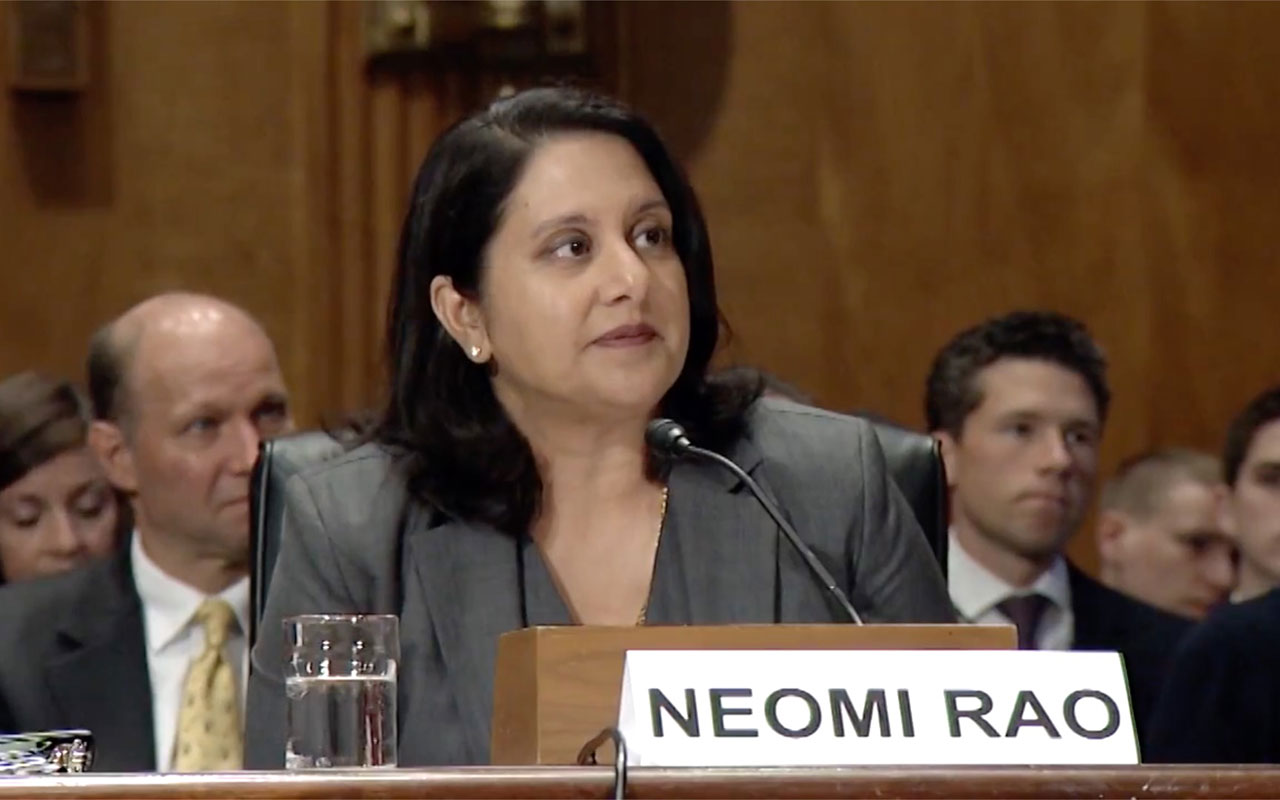
Sen. Heidi Heitkamp's office Within days of taking office, Rao rolled out the semiannual Unified Agenda of Regulatory and Deregulatory Actions, telling reporters that the preview is “the beginning of a kind of fundamental regulatory reform and a reorientation of where we’re going with regulation.”
The documents, required since 1978 as a preview of what rules agencies are planning for the near and long term, is intended by the Trump team as a “reorientation toward reducing unnecessary regulatory burden on the American people” in order to “promote economic growth and innovation and protect liberty.”
In hard numbers, the agenda already in Trump’s first five months produced “quantifiable annualized cost savings estimated at $22 million, compared to $6.8 billion in annualized costs due to rules finalized during last five months of fiscal year 2016,” the document said. In line with Trump’s executive order calling for two rules to be killed for everyone one introduced, agencies withdrew 469 actions proposed in the Obama administration’s fall 2016 uniform agenda, and delayed or reclassified hundreds more.
In a Sept. 7 memo, Rao told agencies to develop targets for cutting regulatory costs, a move that received mixed reviews. Jitinder Kohli, the managing director at Deloitte Consulting LLP who previously ran regulatory reform for the United Kingdom, told Government Executive, “This shows the administration's commitment to driving an ambitious regulatory reform agenda.”
Liberal-leaning opponents of Trump’s agenda reacted with dismay and puzzlement. “The administration is forcing agencies to only consider costs to corporations when issuing new rules or repealing existing ones,” Amit Narang, regulatory policy analyst for Public Citizen, told Government Executive. “This one-sided approach means agencies are basically ignoring benefits when choosing how to protect the public through health and safety regulation. But as Hurricane Harvey showed, the benefits of regulation, and the costs when they're lacking, are very real.”
4/10
Kathleen McGettigan
Acting Director, Office of Personnel Management
The federal government’s human resources office faces a slew of responsibilities in the coming months and years as President Trump aims to shrink many agencies and revamp the civil service. President Trump’s first choice to lead the agency, George Nesterczuk, withdrew his name from consideration in August after concerted pushback from federal employee unions. Trump next tapped HR professional Jeff Pon to lead the agency, but Pon’s nomination has been held up by Senate Homeland Security and Governmental Affairs Committee Chairman Ron Johnson, R-Wis., in a dispute with the administration over health care documents.
That leaves Kathleen McGettigan as acting director, a career employee who has worked at OPM for 25 years. She now finds herself tasked with assisting agencies as they engage in mandated workforce reductions, overhauling the governmentwide performance management system and addressing hiring and firing concerns, in addition to the day-to-day tasks involved in being the personnel director for more than 2 million employees.

OPM photo Working in an acting capacity, McGettigan faces particular challenges in implementing the Trump administration’s agenda. Nonetheless, she hasn’t shied away from controversial actions. In December, she issued guidance saying agencies could use President Trump’s executive order abolishing labor-management councils across government as justification for throwing out collective bargaining agreements with their workforces.
She instructed departments to abolish their labor-management forums and eliminate any rules or policies related to those forums. The memo also ordered agencies to examine whether their agreements with federal employee unions include provisions involving the forums or other labor outreach for “pre-decisional involvement,” and when applicable, to renegotiate or get rid of them.
5/10
Scott Pruitt
Administrator, EPA
Scott Pruitt, the former attorney general of Oklahoma, built a career on opposing the Environmental Protection Agency. Pruitt’s official state website called him a “leading advocate against the EPA’s activist agenda.” Now, he’s the one setting EPA’s agenda.
.jpg)
Andrew Harnik/AP Among other actions, he has begun cutting thousands of jobs at EPA. Following guidance from OMB requiring all agencies to propose civilian workforce reductions, EPA issued a memorandum in April announcing its plans to reduce the workforce with buyouts and early retirement incentives.
Pruitt has come under fire for replacing academic scientists on an agency review board, the Board of Scientific Counselors, with industry representatives. As reported by The New York Times, EPA spokesman J. P. Freire said Pruitt “believes we should have people on this board who understand the impact of regulations on the regulated community.” In a statement to Government Executive, Freire said, “Advisory panels like BOSC play a critical role reviewing the agency’s work.”
Employees at scientific agencies across the federal government, including the EPA, have launched protests and voiced their concerns about a perceived disregard for scientific data by the Trump administration.
While Pruitt backed away from an effort to prevent agency scientists from presenting their research, he said he will move forward with a plan to give more weight to anti-climate change research by launching a “red team, blue team” initiative in early 2018 to debate the merits of the science. The controversial proposal will reignite a debate previously considered conclusive at EPA, namely the role humans and the emissions they generate play in climate change.
6/10
Ajit Pai
Chairman, Federal Communications Commission
In his first 10 days as head of the Federal Communications Commission, former Verizon lawyer Ajit Pai issued a slew of new rules and declarations, prompting the lone Democrat on the five-member commission (currently with two vacancies) to issue dissents.
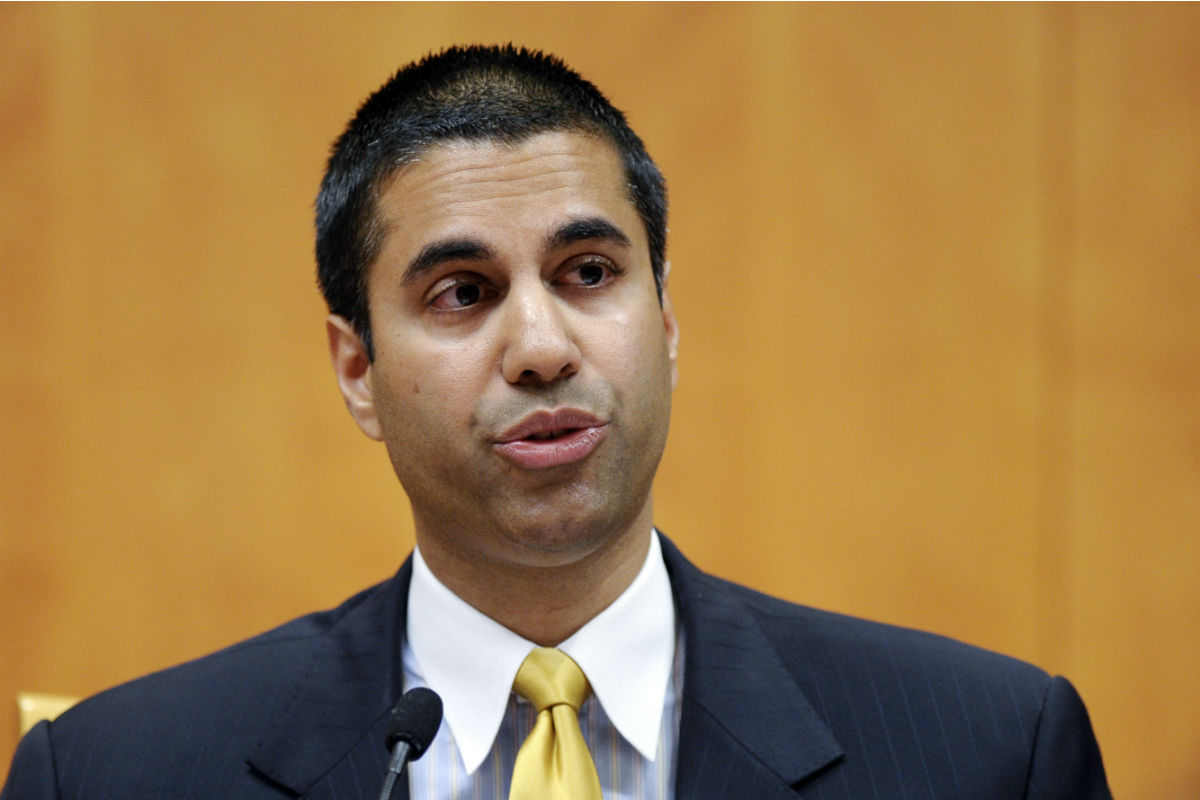
Susan Walsh/AP Pai revoked what he called Obama-era “midnight regulations” and reports released in that administration’s final days which he deemed controversial. “In some cases, commissioners were given no advance notice whatsoever of these midnight regulations. In other cases, they were issued over the objection of two of the four commissioners,” said Pai, who was named to the commission in 2012 and hence was able to begin his role as commissioner immediately. “These last-minute actions, which did not enjoy the support of the majority of commissioners at the time they were taken, should not bind us going forward.”
Most significantly, in December the FCC repealed Obama-era net neutrality regulations that gave the government oversight of internet service providers like Verizon, AT&T and Comcast. Commissioners passed FCC Chairman Ajit Pai’s controversial “Restoring Internet Freedom” order on a 3-to-2 vote along party lines. The measure rolls back rules that prohibited broadband companies from prioritizing certain websites or users over others by charging more for faster speeds.
The decision came after months of contentious debate. Pai and deregulation proponents argue the measure will increase online competition and spur investment in broadband infrastructure. But internet freedom advocates say the rules are necessary to keep the web free and open, and keep major providers and platforms from stifling potential competition.
7/10
Seema Verma
Administrator, Centers for Medicare and Medicaid Services
Even as the Trump administration works to repeal the Affordable Care Act, it is taking advantage of one of the 2010 law's provisions to advance its own take on health system innovation. Seema Verma, administrator of the Centers for Medicare and Medicaid Services, plans to redirect the six-year-old Center for Medicare and Medicaid Innovation within the Health and Human Services Department. Its mission is to test new approaches or models to pay for and deliver high-quality health care more efficiently.
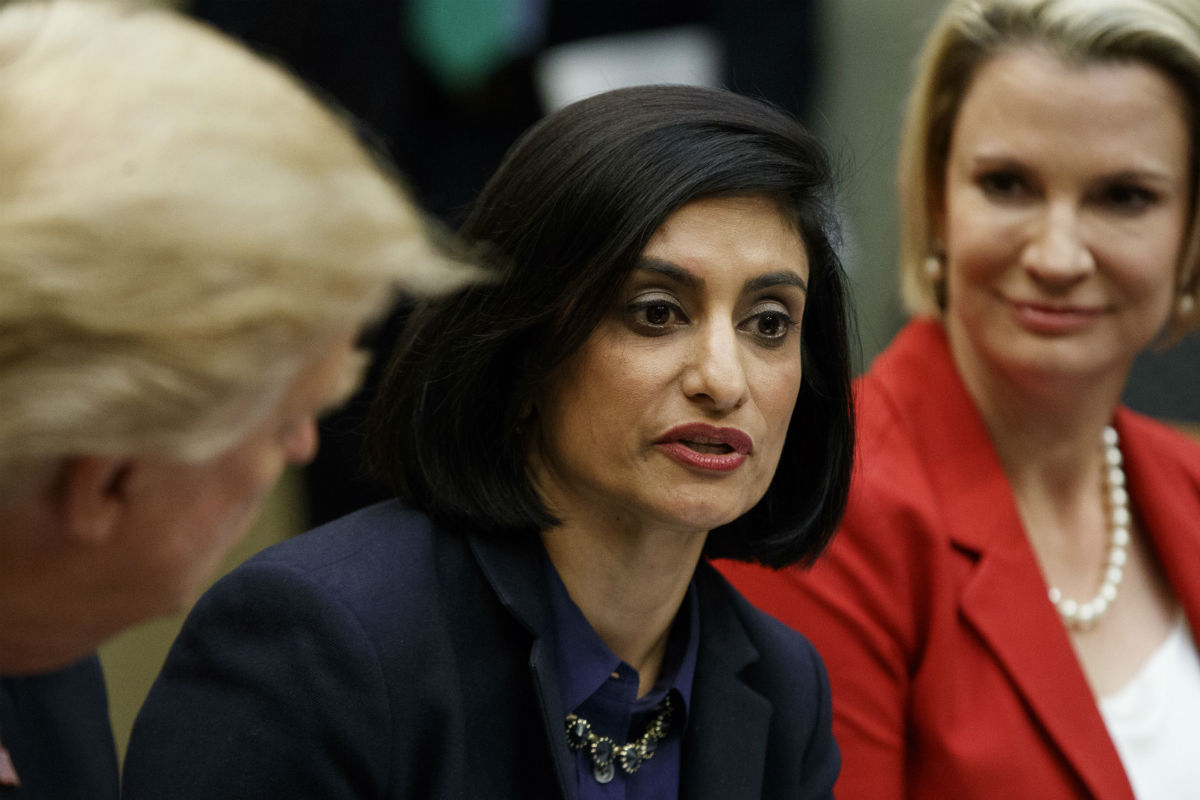
Seema Verma, center, speaks during a meeting on women in health care. (Evan Vucci/AP). “We will move away from the assumption that Washington can engineer a more efficient health-care system from afar—that we should specify the processes health-care providers are required to follow,” Verma wrote in a Wall Street Journal op-ed. “We are analyzing all Innovation Center models to determine what is working and should continue, and what isn’t and shouldn’t,” she added. “The complexity of many of the current models might have encouraged consolidation within the health-care system, leading to fewer choices for patients.”
Verma, who was brought to CMS by President Trump and Vice President Mike Pence after she revamped health programs in Indiana, wrote, “We need to empower patients with information to seek value and quality as they shop for services. They also need incentives to be cost-conscious. Patients can define value better than the federal government can.”
Dr. Donald Berwick, the CMS Administrator under Obama, told Government Executive that he found the Trump direction on innovation confusing. “The move away from fee for service and toward paying for value or outcomes has been largely bipartisan since its inception,” he said. “The decision by CMS to slow down or backpedal on bundled payment mechanisms is not consistent with the evidence that there are smarter ways to pay for health care.”
In another major policy shift, in January the Trump administration threw its support behind states that want to impose work requirements as a condition for beneficiaries to receive Medicaid, the federal health care program for low-income people.
“Our fundamental goal is to make a positive and lasting difference in the health and wellness of our beneficiaries, and today’s announcement is a step in that direction,” Verma said.
8/10
David Bernhardt
Deputy Secretary, Interior
While Interior Secretary Ryan Zinke has been the face of a shift in the nation’s land management priorities away from conservation and preservation to resource development, Deputy Secretary David Bernhardt, who led President Trump’s transition team at Interior, has been the force behind changes in how the department operates. Those include executive reassignments, staff cuts and a broad restructuring plan that could shift thousands of jobs to new locations within the 70,000-person department.
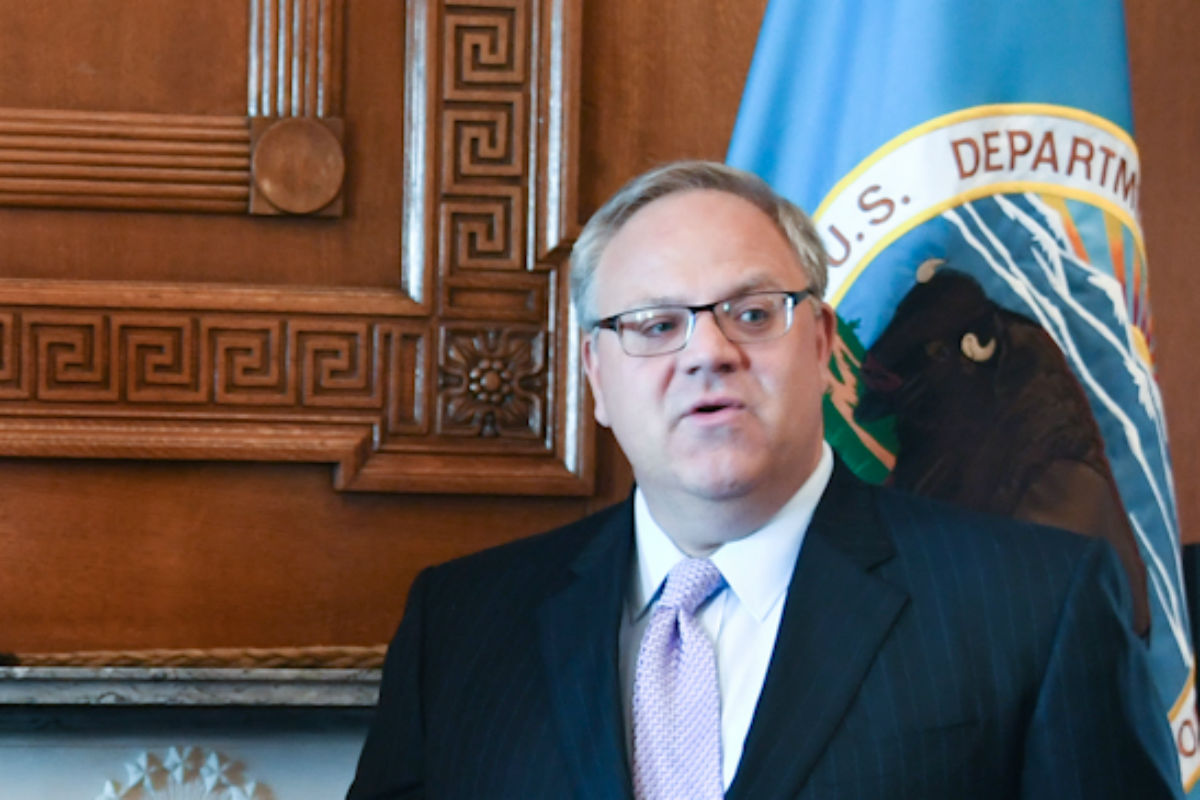
Interior Department photo A native of Colorado, Bernhardt is an avid hunter and angler, who, according to Sen. Lisa Murkowski, R-Alaska, “understands the management of federal lands and the balance between conservation and development.” To many conservationists and environmentalists, however, he’s too focused on the development side of the equation. As solicitor at Interior under President George W. Bush, he authored a legal opinion, later dismissed, that made it more difficult to designate endangered species, according to USA Today.
Bernhardt has deep knowledge of Interior’s operations, having served in various capacities at the department from 2001 to 2009, and he is expected to play a critical role in reorganizing the sprawling department.
Secretary Ryan Zinke said reorganizing Interior is among his top priorities. According to The Washington Post:
The [restructuring] proposal would divide the United States into 13 regions and centralize authority for different parts of Interior within those boundaries. The regions would be defined by watersheds and geographic basins, rather than individual states and the current boundaries that now guide Interior’s operations. This new structure would be accompanied by a dramatic shift in location of the headquarters of major bureaus within Interior, such as the Bureau of Land Management and the Bureau of Reclamation.
9/10
David Shulkin
Secretary, Veterans Affairs Department
Dr. David Shulkin has been deeply involved in reforming the Veterans Affairs Department since he arrived at VA during the Obama administration to serve as undersecretary of health. When President Trump tapped him to lead the department, veterans groups and lawmakers from both parties were highly supportive.
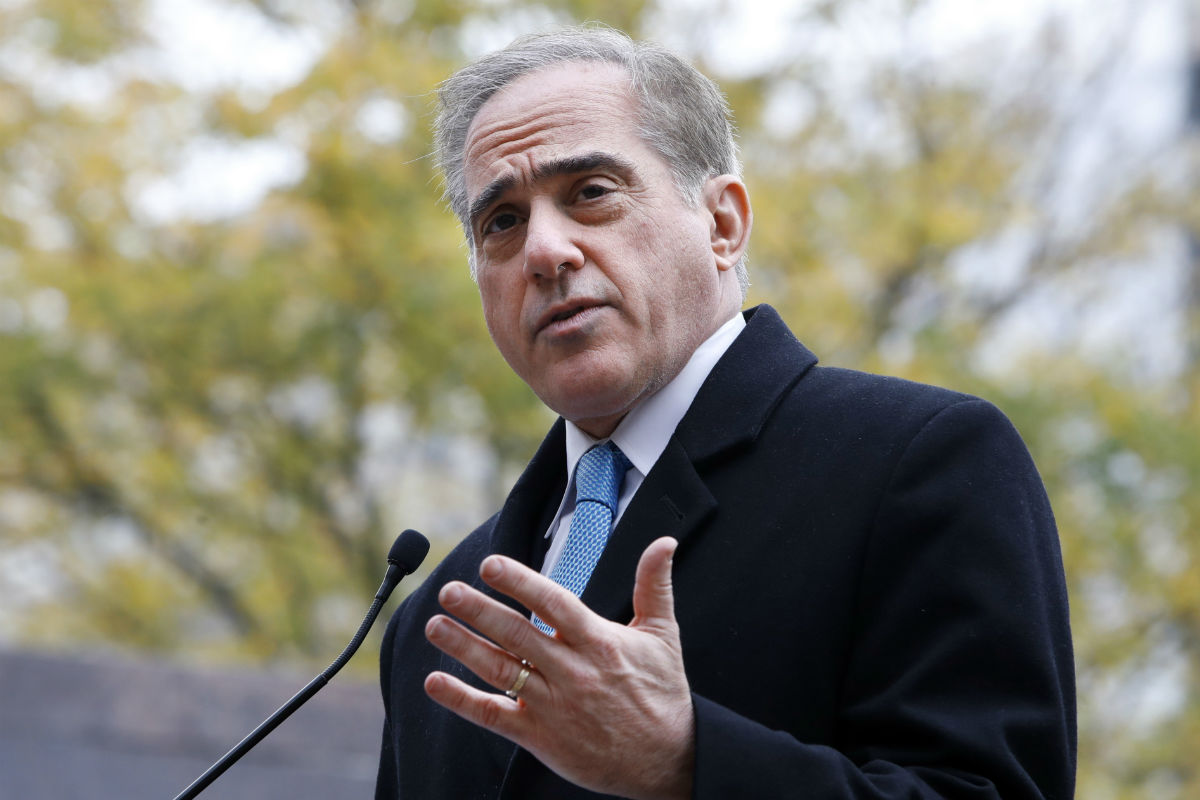
Jacquelyn Martin/AP Armed with a new law in June, the Department of Veterans Affairs Accountability and Whistleblower Protection Act, Shulkin has tried to establish a higher standard of performance and accountability at VA. The law provides new authorities to fire, suspend or demote employees with only 15 days' notice, while still preserving some protections for federal employees. Additionally, VA may now revoke bonuses from employees found to have engaged in misconduct or poor performance prior to the award, and dock retirement benefits from workers found guilty of a felony that could have affected their work.
In July, VA began publicly posting all major disciplinary actions taken against employees, saying the action will send a message about the new culture the Trump administration is imposing at the agency. The postings are the first of their kind in the federal government, Shulkin said.
“Under this administration, VA is committed to becoming the most transparent organization in government,” Shulkin said. “This additional step will continue to shine a light on the actions we’re taking to reform the culture at VA.”
In October, VA asked Congress for expedited hiring authority and bonuses to help recruit and retain employees in conjunction with its push for expanding veterans’ access to private sector health care. He also asked Congress to address pay gaps at the department, noting its nurses’ starting salaries are 20-30 percent lower than in the private sector.
- Start Over
10/10
Thomas Homan
Acting Director, Immigration and Customs Enforcement
Acting ICE Director Thomas Homan has been among President Trump’s fiercest advocates in government pushing his immigration reforms on the ground. A career law enforcement officer with more than three decades of experience, Homan received a 2015 Presidential Rank Award for his service during the Obama administration.
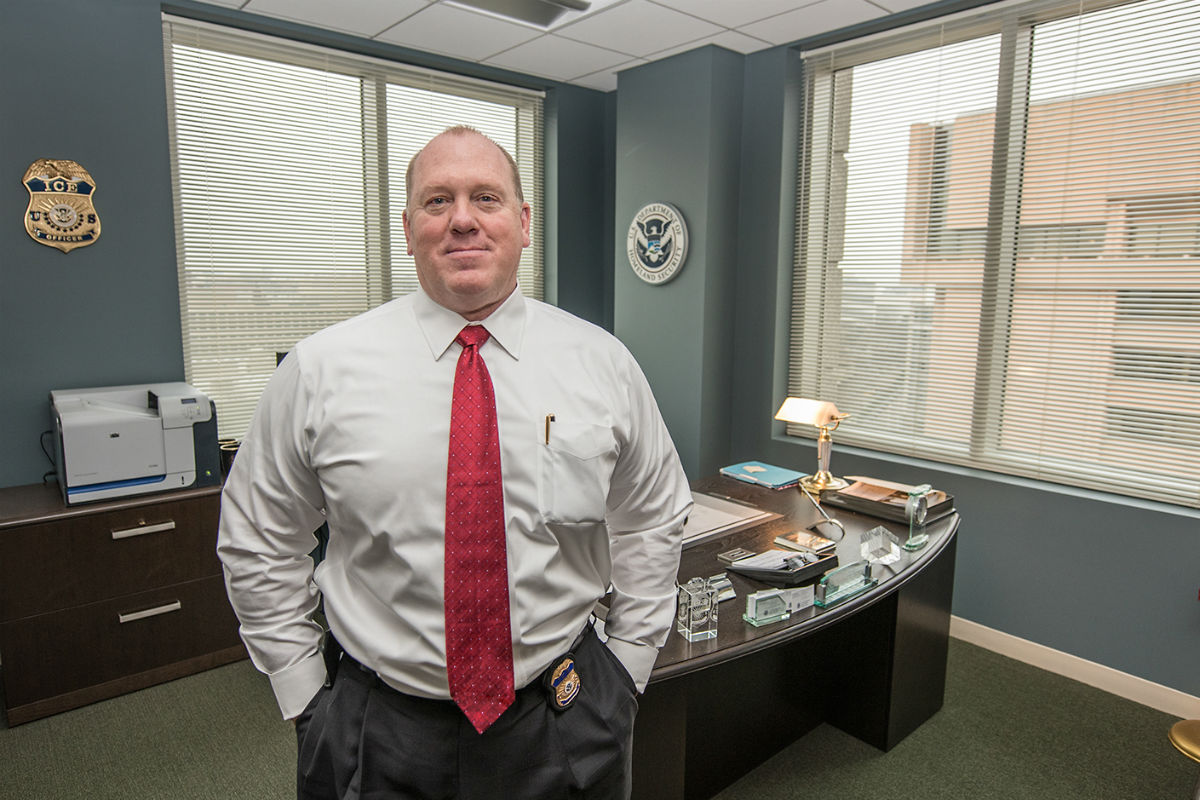
ICE photo Homan reiterated in December the agency’s need for the 10,000 new agents Trump has mandated. He said ICE would need more resources, including both personnel and detention beds, to continue to make progress on Trump’s campaign promise to deport undocumented immigrants.
Homan and other administration officials touted the progress they have made on that front already. ICE removed more than 81,000 individuals as a result of arrests from Jan. 20 through Sept. 30, a 25 percent increase from the same period in fiscal 2016. Overall ICE removals were down 6 percent in the fiscal year since Trump took office, but that was due to a dramatic decline in border deportations. The ratio of removals resulting from ICE arrests increased from 27 percent to 36 percent.
“ICE is hitting on all cylinders,” Homan said. He attributed the boosted figures to new policies under Trump that enable his agents to remove any undocumented immigrant for any reason, rather than just those who have committed serious violent crimes.
While immigrant advocates have decried ICE’s stepped up enforcement operations, Homan is unapologetic. In testimony before Congress in June, he said all undocumented immigrants are now vulnerable to arrest and deportation by virtue of their immigration-related violations alone.
“You should be uncomfortable,” Homan said as a word of warning to that population. “You should look over your shoulder. You should be worried.”
10 Executives Reshaping Government
StartEvery president enters office with promises to make government work more efficiently and effectively. President Trump is no exception. His administration has pledged to improve border security, serve veterans more effectively, jump start the economy and reduce unnecessary spending. Here are some of the key players carrying out that agenda.
- Start Over


